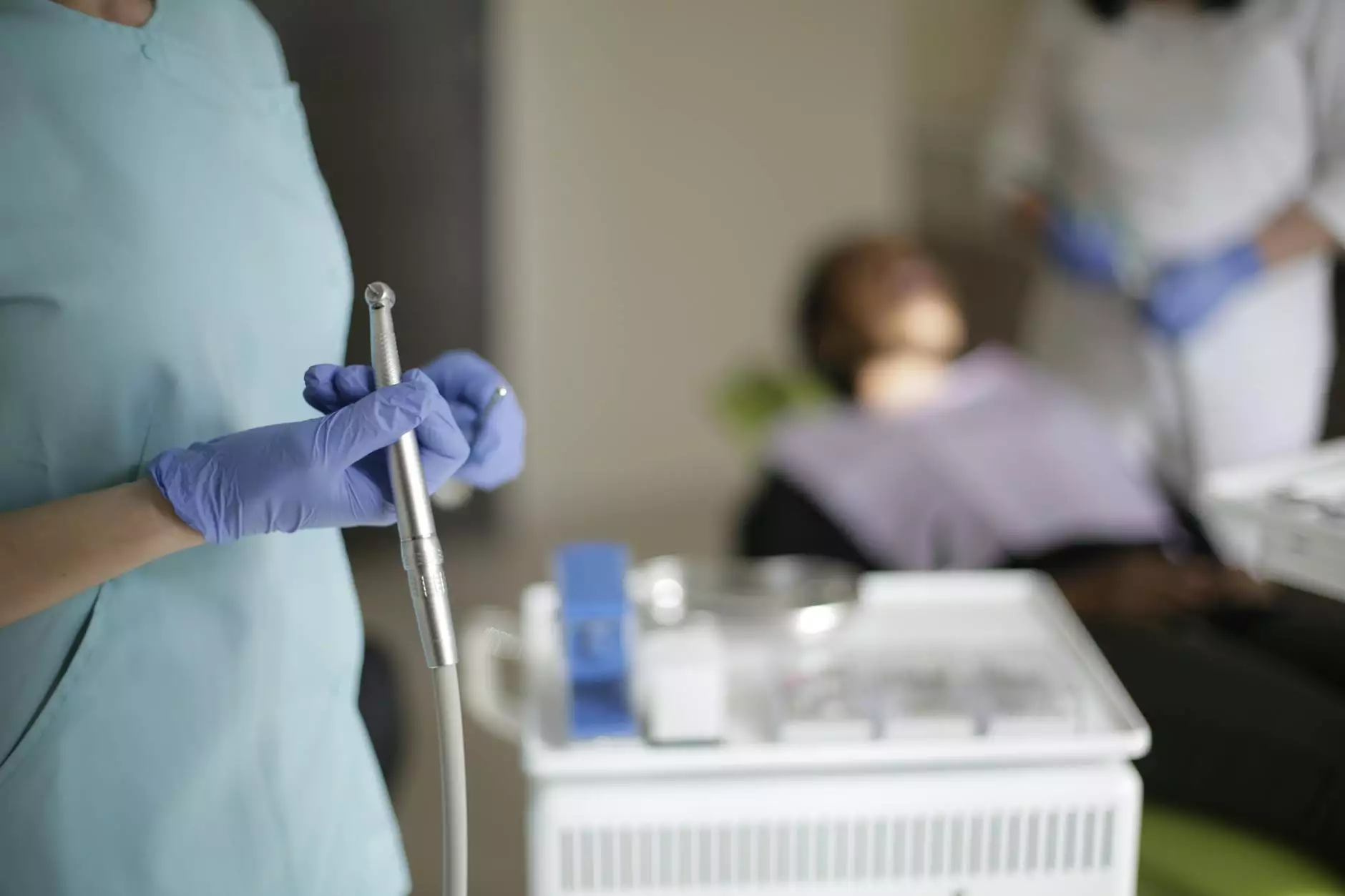Your Ultimate Guide to Finding the Best Dentist in the Area

When it comes to maintaining your oral health, finding the right dentist in the area is crucial. It can make all the difference in ensuring that you receive quality care, personalized attention, and professional advice. In this comprehensive guide, we will explore the importance of choosing the best dentist, share tips on locating a dental professional that meets your needs, and discuss the various services you should look for.
Why Finding the Right Dentist is Important
Oral health is a vital aspect of overall health and well-being. Seeking treatment and preventive care from a highly qualified dentist can significantly impact your quality of life. Regular dental check-ups can help prevent serious conditions, such as tooth decay and gum disease, which can lead to complex problems if left untreated.
The Benefits of Regular Dental Visits
- Prevention of Dental Issues: Regular visits allow for early detection of dental problems, saving you time and money in the long run.
- Customized Oral Hygiene Tips: A good dentist will guide you in maintaining optimal oral hygiene tailored to your unique needs.
- Professional Cleanings: These remove tartar and plaque that regular brushing cannot, reducing your risk of cavities and gum disease.
- Education: Dentists often provide valuable knowledge about maintaining healthy teeth and gums.
- Peace of Mind: Regular examinations ensure you can enjoy a confident smile without worry.
Key Factors to Consider When Choosing a Dentist
Finding a dentist in the area that aligns with your personal and family needs involves a thoughtful approach. Here are crucial factors to consider:
1. Qualifications and Experience
Ensure that the dentist you choose has the necessary qualifications and experience. Consider checking their education, certifications, and years in practice. Additionally, specialized training in areas like orthodontics or pediatric dentistry can be advantageous, depending on your specific needs.
2. Services Offered
Different dental practices offer varying services. Make sure to choose a dentist who provides comprehensive care, including:
- Preventive Care: Routine exams, cleanings, and fluoride treatments.
- Restorative Services: Fillings, crowns, bridges, and root canals.
- Cosmetic Dentistry: Teeth whitening, veneers, and bonding to enhance your smile.
- Orthodontics: Braces and aligners for teeth straightening.
- Periodontal Care: Treatments for gum disease and other issues.
3. Office Environment and Technologies
The atmosphere of the dental office can greatly influence your experience. A welcoming, clean, and well-organized practice will help you feel more comfortable during your visits. Moreover, inquire about the technology used in the office. Modern digital tools can enhance diagnosis and treatment, providing a higher standard of care.
4. Location and Convenience
Having a dentist in the area that is easily accessible can save you time and reduce stress. Consider the office hours offered and whether the schedule aligns with your availability. Check if the practice offers emergency services or same-day appointments for urgent issues.
5. Insurance and Payment Options
Before making your decision, verify if the dentist accepts your insurance plan. Understanding their payment options can help you avoid any financial surprises. Many dental practices offer various financing plans to accommodate patients without insurance or those needing extensive treatments.
Questions to Ask Your Potential Dentist
When interviewing potential dentists, having a list of questions can help you assess which one is right for you. Here are some suggested questions:
- What is your approach to preventive care?
- How do you handle dental emergencies?
- What technologies do you use to ensure accurate diagnosis and treatment?
- Can you explain your treatment options and their associated costs?
- What is your policy on referrals to specialists?
Patient Reviews and Testimonials
Researching patient reviews can provide insights into the level of care provided by a dentist. Look for testimonials on the practice's website, as well as independent review platforms. Consider factors such as:
- Overall satisfaction
- Quality of care
- Friendliness of staff
- Wait times for appointments
The Importance of a Positive Patient-Dentist Relationship
A strong relationship with your dentist is key to effective communication and successful treatment outcomes. Feeling comfortable discussing your concerns and asking questions is essential for satisfactory care.
It is also beneficial to choose a dentist who prioritizes patient education, empowering you to make informed decisions about your treatment and oral health.
The Steps to Schedule Your First Appointment
Once you’ve narrowed down your options for a dentist in the area, take the following steps to schedule your first appointment:
- Call the Office: Inquire about availability, appointment length, and any necessary paperwork.
- Prepare Your Medical History: Bring a list of medications, allergies, and previous dental work to provide your dentist with a complete picture of your health.
- Ask About Financial Policies: Clarify what payment methods are accepted and the process for insurance claims.
- Be Open About Your Concerns: Discuss any anxieties or specific dental issues you may have to ensure you receive tailored care.
Maintaining Oral Health Beyond the Dentist's Office
While regular visits to a dentist are crucial, maintaining good oral hygiene at home is equally important. Here are some tips to keep your teeth and gums healthy:
- Brush Twice Daily: Use a fluoride toothpaste and brush for at least two minutes each time.
- Floss Daily: Flossing removes food particles and plaque from between your teeth that brushing alone cannot reach.
- Limit Sugary Foods and Drinks: Foods high in sugar can lead to cavities; try to maintain a balanced diet rich in fruits and vegetables.
- Stay Hydrated: Drinking water, especially fluoridated water, can help rinse away food particles and bacteria.
- Quit Smoking: Smoking can have adverse effects on your oral health, including gum disease and oral cancer.
Conclusion
Choosing the right dentist in the area is an essential step towards achieving and maintaining excellent oral health. By considering factors such as qualifications, services, environment, and patient reviews, you can make an informed decision.
Remember, your oral health is an integral part of your overall well-being. Invest the time to find a dentist who not only meets your needs but also fosters a trusting relationship, ensuring that you receive the best care possible. By prioritizing your dental health and following sound dental practices at home, you set yourself on the path to a bright, healthy smile for years to come.








